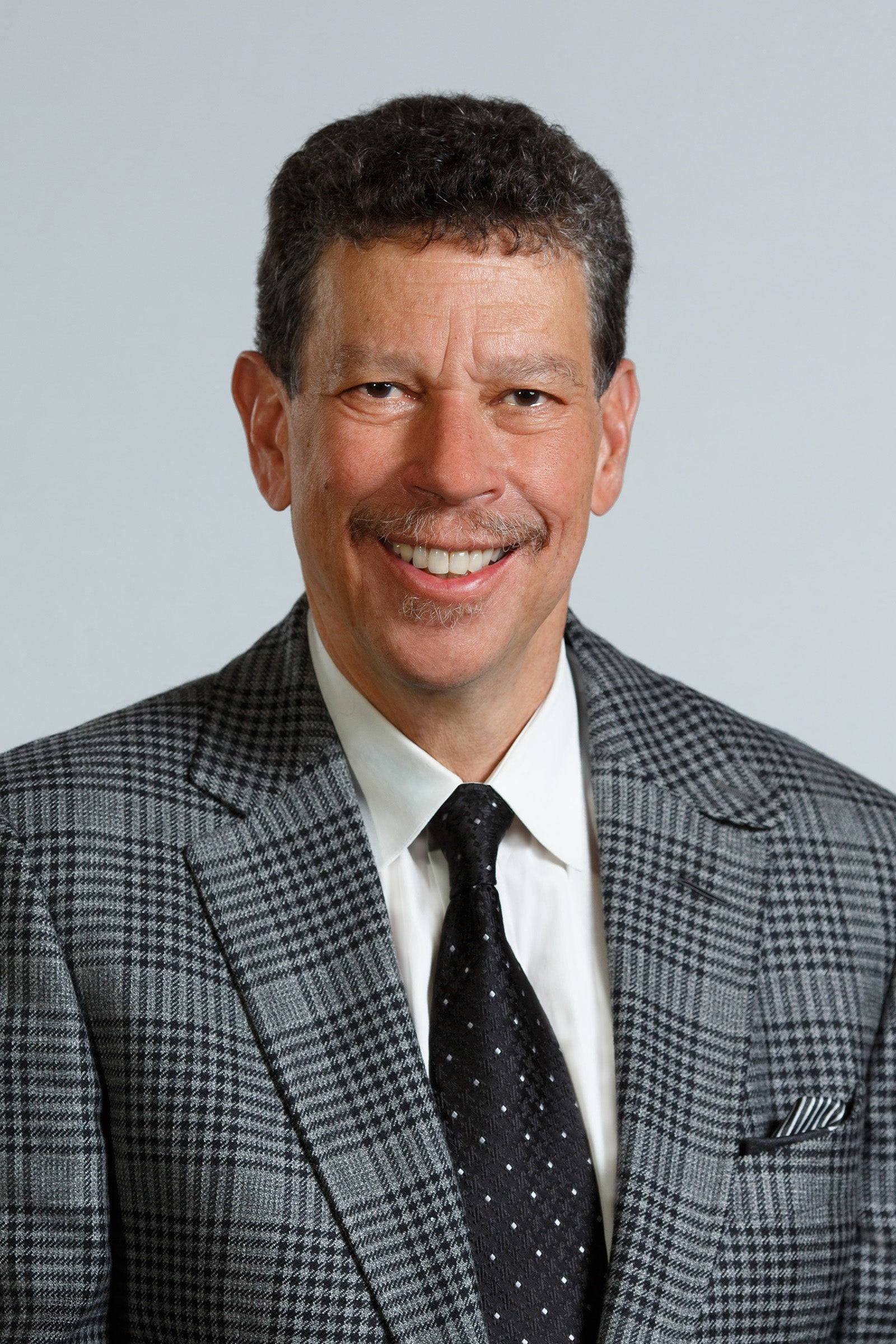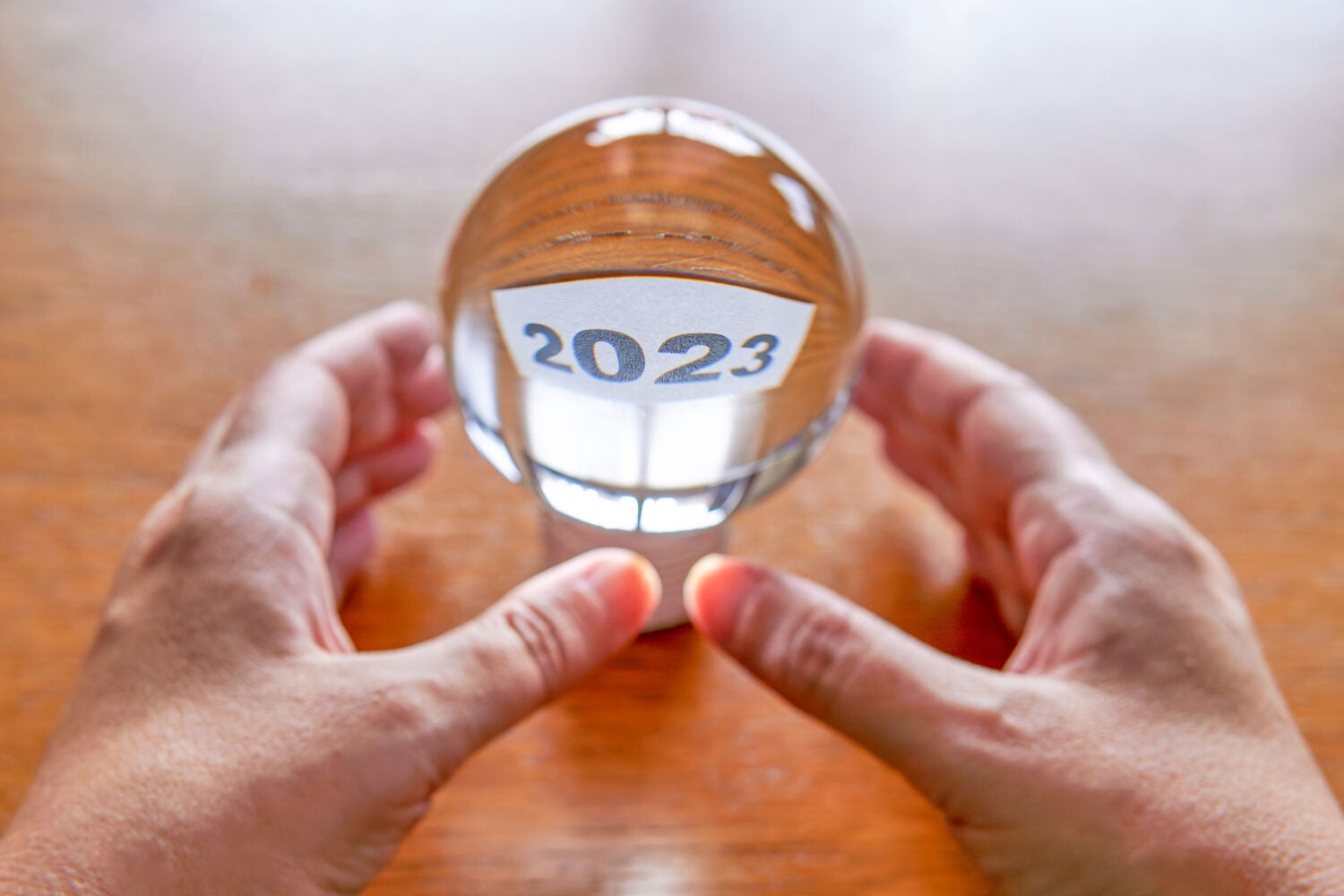Now that the champagne is long gone, the confetti has been swept up, and we are settling into 2023, Harvard Law Today wondered what changes the new year might have in store for the practice of law. Are remote courtrooms here to stay? Will attorneys ditch the office permanently, or are hybrid schedules the way of the future? And what challenges will lawyers be asked to confront?
David B. Wilkins ’80 is Harvard Law’s Lester Kissel Professor of Law and director of the Center on the Legal Profession, which seeks to better understand and shape the practice of law around the world. He spoke with Harvard Law Today about his predictions for the year ahead, how a changing economy could alter commitments to issues inside and outside the law, and why it is an exciting time to be a lawyer.

Harvard Law Today: The last few years have been a watershed in how the world operates — and the legal profession has been no different. Whether remote courts or hybrid work or online legal education, the way the profession operates is different today than it was pre-pandemic. How do you see these issues playing out over the next year?
David B. Wilkins: The next year is going to be significant for the legal profession when it comes to these issues. We’re traveling more, but remote work is here to stay. As a result, most legal organizations have adopted some form of hybrid work — although often grudgingly! But we are still just at the beginning of understanding how to make these policies work effectively. In particular, we are being forced to evaluate in a strategic way what works best face-to-face and what actually can be done as well or even better online. During 2023, we will continue to see a lot of trial and error and experimentation. It will be an opportunity for new ideas and innovation to come to the fore while we also try to understand what are the most important things that we want to preserve about the way things were done before the pandemic. And we will have to navigate all of this at the same time that younger generations — digital natives who are even more focused on finding meaning and purpose in their personal and professional lives — slowly but surely replace baby boomers and GenXers as the dominant force within the profession.
HLT: How will changes in the economy in 2023 affect these issues?
Wilkins: Surprisingly, 2020, 2021, and even most of 2022 turned out to be very good years for legal work, particularly for law firms. Looking back, you can see why. As the federal government pumped trillions of dollars into the system and businesses and individuals adjusted to remote work, the overall economy did much better than anyone would have anticipated. In addition, there were all these new legal problems — uncertainty around the pandemic, as well as geopolitical issues, like the sanctions against Russia — that created new demand for lawyers as businesses, governments, and individuals tried to figure out how to react to these challenges. No one, however, thinks that the economy is going to continue to be this strong in 2023 — whether we technically go into (or are already in) a recession or not. The tech sector has already been hit especially hard, and it is likely that other sectors will follow. Not surprisingly, many law firms who hired lawyers in droves over the last few years to service these clients are now laying many of them off.
“Many law firms who hired lawyers in droves over the last few years to service these clients are now laying many of them off … it will be interesting to track how this belt tightening will affect the commitments that law firms, in-house legal departments, and other legal employers have made about issues such as diversity, mental health and wellbeing, pro bono and public service, and the rule of law.”
Given this dynamic, it will be interesting to track how this belt tightening will affect the commitments that law firms, in-house legal departments, and other legal employers have made about issues such as diversity, mental health and wellbeing, pro bono and public service, and the rule of law. There have been a lot of commitments made about these issues over the last few years – commitments that will be put to the test in a much more challenging economic environment.
HLT: That really ties in nicely to my next question, which is a topic you know well: ESG, or environmental, social, and corporate governance. In September, the Center on the Legal Profession hosted a major conference around reimagining the role of business in the public square. As you know, lawyers are increasingly playing a key role in ESG issues. I wonder if you could talk a little bit about why you think that’s the case, but also what challenges lawyers might face in this area in the coming year.
Wilkins: The challenging economic environment we’re moving into, ironically, is likely both to accentuate the importance of ESG and to make these issues even more complex. As we look at the dramatic increase in unprecedented weather events, the effects of climate change and other environmental issues are increasingly undeniable. At the same time, addressing these issues has become more and more controversial, both politically and otherwise. These issues are hard enough to deal with in a booming economy, but they are likely to be even more challenging in the coming year as businesses, governments, and even individuals have to make tough choices between dealing with the present necessities and trying to avert long-term dangers.
“Precisely because lawyers are finding themselves in the middle of complex challenges, there’s never been a more important, interesting, and potentially impactful time to be a lawyer. Lawyers are now grappling with some of the most fundamental issues facing our society.”
But the one thing that is not likely to change is that many of these issues are going to land on the desks of lawyers. As we found in a study we conducted in the spring of 2022 with the legal arm of the Big Four accounting firm EY, in which we surveyed over one thousand general counsels in companies around the world, ESG issues are a major focus of in-house legal departments — with most general counsels expecting work in this area to increase significantly in the coming year. But lawyers in the public sector and even those who represent individuals are also likely to see their engagement with these issues rise. ESG issues are increasingly moving from “soft law” to “hard law” — think, for example, the SEC’s proposed climate disclosure regulations, or laws in many jurisdictions around the world requiring gender diversity on boards of directors, or prohibiting “modern slavery” in supply chains. These new laws will inevitably spark new litigation. Even transactional lawyers are increasingly being asked to consider environmental, social, and governance risks as a critical part of due diligence.
HLT: Turning away from the challenges lawyers are likely to face, I’d love to ask you about what excites you for 2023 in the legal profession. Why will it be an exciting time to be a lawyer?
Wilkins: Precisely because lawyers are finding themselves in the middle of these complex challenges, there’s never been a more important, interesting, and potentially impactful time to be a lawyer. Lawyers are now grappling with some of the most fundamental issues facing our society, from sustainability, to creating more just and inclusive models of economic activity, to safeguarding individual rights and dignity, to the preservation of the rule of law and our most fundamental democratic institutions. To tackle these problems, lawyers will paradoxically have to be engaged with more than just law. Law is a part — but in many cases, not the most important part — of finding solutions to these critical questions. Moving from simply providing legal advice to creating what my co-author Maria Jose Esteban and I have been calling “integrated solutions” will certainly force lawyers out of their comfort zone. But it will also give the profession the opportunity to play an important role in solving some of the world’s most pressing problems. I can’t think of a better future for our graduates!
Learn more about the Center on the Legal Profession’s work on the future of the profession on their website.
Want to stay up to date with Harvard Law Today? Sign up for our weekly newsletter.
